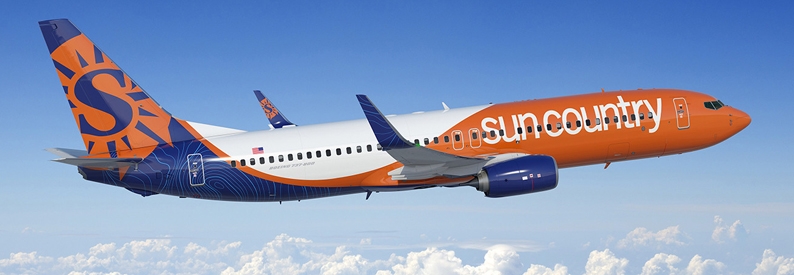Sun Country Trims Fleet Amid 737 Parts Shortage

Sun Country Airlines has announced it will reduce its operational fleet over the coming months due to an industry-wide shortage of spare parts for its exclusively Boeing 737 jetliner roster. During its first-quarter 2025 earnings call on May 3, CEO Jude Bricker revealed that the leisure carrier will retire one Boeing 737-800 earlier than planned and delay entry into service of a newly acquired 737-900 until late 2025. The temporary cutbacks come as parts availability tightens and maintenance costs rise across the airline industry.
Sun Country’s current fleet comprises 44 passenger-configured Boeing 737-800s, with an average age of 16.6 years, plus 15 Boeing 737-800 freighters operated on behalf of Amazon’s Prime Air network. Bricker attributed the early retirement of one 737-800 to “tightness” in the components market, where long lead times and soaring demand have driven up costs for critical parts ranging from avionics modules to structural components. The decision will reduce the carrier’s maintenance spend but also temporarily shrink its passenger capacity.
In late 2024, Sun Country acquired a single Boeing 737-900ER (registration N901SY) from Oman Air to bolster its long-haul leisure network. However, Bricker confirmed that the 737-900 will remain in storage through most of 2025, citing a “temporary surplus” in passenger fleet capacity and ongoing parts shortages. He warned that unit costs will rise until staffing levels and spare part inventories catch up, a process he expects to complete by the second quarter of 2026.
Despite the fleet adjustments, Sun Country does not believe demand for its leisure and charter services has weakened. Bricker highlighted a robust performance in the airline’s charter segment and said the company continues to deliver “high levels of free cash yield.” He added that the carrier’s liquidity and balance sheet flexibility will enable it to seize opportunities, including share repurchases under a recently approved $25 million buyback plan.
Sun Country serves 296 routes across 144 destinations in six countries with a total fleet of 60 aircraft, including its 15 converted freighters. Four of those freighters are currently listed as stored or undergoing maintenance due to the same parts bottleneck affecting its passenger jets. Industry observers note that spare part constraints have been compounded by the COVID-19 pandemic’s disruption of global supply chains, leaving many airlines scrambling for components.
The difficulties extend beyond airframe parts. Airlines operating Airbus A320neo family jets powered by Pratt & Whitney GTF engines have also experienced prolonged groundings while awaiting critical engine components and coping with increased inspection requirements after technical issues were detected. In addition, the industry faces a shortage of licensed aircraft maintenance engineers, many of whom retired early during the pandemic and have yet to be replaced, creating further delays in routine and corrective maintenance.
Sun Country’s move to shrink its 737 fleet is one of several examples of carriers recalibrating operations in response to lingering post-pandemic challenges. By proactively retiring older jets and deferring new aircraft entries, Sun Country aims to control maintenance outlays and preserve profitability while continuing to meet leisure travel demand. The airline’s leaders believe that once spare parts flow more freely and staffing is fully restored, the fleet can grow again in line with seasonal demand and network expansion plans.
As the aviation sector works to resolve supply chain disruptions, carriers like Sun Country are balancing short-term sacrifices against long-term gains. Retiring an aging 737-800 and postponing the 737-900 launch may cause temporary capacity constraints, but these measures should help stabilize unit costs, ensure fleet reliability and position the airline for a stronger recovery as parts markets normalize and demand rebounds.
Related News : https://airguide.info/?s=Sun+Country
